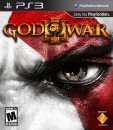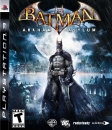I've posted this before, but it seems to fit here, too:
______________________________________________________________________________________________
Press Start to BeginThe Life of Shigeru Miyamoto The most successful video game designer in the world is a child.
At heart.
55-year-old Shigeru Miyamoto, Nintendo’s acclaimed General Manager, has revolutionized the world of video gaming by submersing game players in whimsical alternate worlds that reflect his own imagination, creativity, and childlike wonder. His games—Super Mario, Zelda, and Donkey Kong, among others—have all been phenomenal successes. The Mario series is the best-selling game series of all time, and has sold over 285 million copies (www.answers.com/topic/mario-1).
Shigeru Miyamoto is a risk-taking, humble, creative powerhouse whose imagination, drive, and success can be traced to his idyllic childhood in the Japanese countryside.
It seems Miyamoto has always been an adventurer. Born November 16, 1952 in the small town of Sonebe, Japan, there was no limit to his imagination. An oft-repeated story tells of the child Miyamoto discovering a dark cave while playing in the field surrounding his country home. Instead of being frightened by the dark and dank opening, he ran home and grabbed a lantern, then returned to explore. One can only imagine the exhilaration and adrenaline he might have felt as he climbed a wall, ran this way and that, and perhaps jumped a stream. On that fateful day, he made a miraculous discovery. Significantly, we know that Shigeru was most delighted when he came to a fork in the cave with tunnels branching off in opposite directions. He could go right, or he could go left, either direction offering untold adventures (www.miyamotoshrine.com). He never forgot that profound feeling of choosing his ‘destiny’ during his playtime.
Besides exploring caves, Miyamoto also had a great love of sketching and drawing. This led him to take an Industrial Design course at the Kanazawa Munici College of Industrial Arts and Crafts in 1970. While he was talented, he wasn’t the best student, admitting that he skipped many of his classes and daydreamed his way through many others. It took him a full five years to complete the three-year program (www.miyamotoshrine.com). It was clear, however, that this was not the path that Miyamoto was very interested in.
After graduation, Miyamoto had a problem—he wasn’t very interested in industrial design! He wanted a career where he could put his vivid imagination and love of adventure to work, to challenge him creatively. Two years after graduating, he still didn’t have a job, but 24-year-old Miyamoto had an idea. He managed to get an interview with the owner of a toy company, family friend Hiroshi Yamauchi (www.miyamotoshrine.com) The toy company? Nintendo.
After a positive first meeting, Yamauchi challenged Miyamoto to develop some toy ideas and return. Delighted, Miyamoto returned with designs for toys that he would have wanted to play with as a child, and it paid off (www.miyamotoshrine.com). He was hired as a staff artist, which was a big achievement considering that Nintendo did not actually need one.
The turning point in Shigeru Miyamoto’s legendary career came in 1980. Nintendo was not doing well, financially, and after the failure of their first video game, Radarscope, they needed a new game that would make or break them. It had to be a smash-hit to help them avoid bankruptcy. Yamauchi charged Shigeru with the task of designing it (http://www.nintendospin.com/features/misc/1160/a-gaming-icon.html).
Miyamoto, who loved video games, was inspired by the challenge, as he had always wanted to find innovative ways to entertain people. After discarding several ideas, he came up with the concept of Donkey Kong. Miyamoto worked with company engineers (since he had no programming training himself), and composed the music with an electric keyboard (www.nintendospin.com/features/misc/1160/a-gaming-icon.html).
Eager to test public reaction to the new game, Nintendo produced one arcade unit and set it up at a local bar. They returned the next day and opened the machine up to find approximately $30 worth of quarters in the box—after doing the math, they figured out that that meant the game had been played nearly every minute the bar had been open that day. Overjoyed, Nintendo developed thousands of units and shipped them to arcades, bars, and restaurants all over Asia and North America. A resounding success, Donkey Kong netted the company $180 million in its’ first year, and a further $100 million in its’ second (en.wikipedia.org/wiki/Donkey_Kong_(video_game)). It was a certifiable smash-hit. And they had Miyamoto to thank.
After the arcade success of Donkey Kong, Nintendo thought the time was right to enter the home console market. Once again, Miyamoto was charged with creating the ‘killer app’ for the console (the game that was so good people would buy the system just to play it).
Miyamoto delivered in spades. When the Famicom Disk System (Nintendo Entertainment System in America) launched in 1985, it came bundled with a little gem called Super Mario Brothers. Featuring the same main character as Donkey Kong, Mario, gamers were thrust into an unbelievable world filled with strange monsters, hidden areas, and lots of treasures. With it’s bright, primary-colour design, the game constantly forced the player to ask questions and take risks: “What happens if I go down that pipe? Is there a secret area?” “What if I hit that question mark block? Will I get a coin? A power-up? Or will it be an enemy?” Set to timeless upbeat music, the game induced the same wondrous sense of exploration that Miyamoto had in that cave so many years before. The fact that people ate the game up (and that it’s still widely considered one of the best video games ever) is a testament to Miyamoto’s ability to relay his own sense of freedom and choice to the world.
Since his early success, Miyamoto never looked back. There were two follow-ups to Mario Bros. on the NES, as well as the launch of the Zelda series (another huge one, in which the player is actually forced to explore caves and dungeons and make decisions similar to the one Miyamoto made) and many others. The Super Nintendo, which launched in 1991, had Super Mario World, The Legend of Zelda: A Link To The Past, and Donkey Kong Country. The list goes on. Yes, Miyamoto’s free spirit has resulted in some of the most recognizable faces in gaming the world has ever seen. He’s also been responsible for hardware innovations that are now expected in every game console. The L and R buttons (buttons mounted on top of the controller for easy access by the index fingers), the trigger (which the index finger sits on, making firing weapons more user-friendly), and the analog stick (a stick that can be rotated by the thumb with varying degrees of sensitivity to allow characters to move with different speeds) are all expected on every console that is made. He also developed the phenomenally successful Super Mario 64 for the Nintendo 64. The game was revolutionary—it was the first video game to offer true 360 degree movement and true 3D graphics, and Mario had a whole repertoire of new moves. The analog stick allowed Mario to run if pushed all the way forward, or tiptoe if pressed only slightly.
In his middle age, Miyamoto has not lost an ounce of his trademark creativity and love of the gaming experience. The innovation of the handheld, dual-screened, touch-sensitive Nintendo DS, as well as the recently-released motion-sensitive Nintendo Wii, speaks for itself. With these two devices, Miyamoto’s first concern is that the gaming experience be paramount.
The primary reason that Miyamoto makes such fantastic games and hardware is his dedication to perfection. If a game is not going the way he wants, he will scrap it and start again, no matter what point it is at in development. Case in point: the ‘legendary’ Nintendo 64 game, The Legend of Zelda: Ocarina of Time. The wildly anticipated first 3D entry in the series was set to come out for Nintendo’s fledgling console soon after the N64’s 1996 launch. However, unimpressed with how the game played, he scrapped the nearly completed project, and started again. It ended up releasing a full two years later, in 1998. Thanks to the extra time, the game met with roaring success, and is considered by most to be the best adventure game ever made. Other big games in the genre now often boast that they are ‘better than Ocarina of Time’. It is the standard by which other adventure games are judged.
Today, Shigeru Miyamoto lives happily in Tokyo, with his wife, Yasuko, and two children. He has won many awards for his design and innovation, including Innovation in Game Play, as well as numerous awards for the high quality of individual titles (www.navgtr.org/id35.html). In 2006, he was inducted into Time Asia’s “60 Years of Asian Heroes”, alongside Bruce Lee and the Dalai Lama (www.time.com/time/asia/2006/heroes/bi_miyamoto.html). He is a legendary designer who brought console gaming back from the brink of extinction, and caused a revolution. And though he is an important businessman, he has never lost his sense of play. At a keynote address at a recent Electronic Entertainment Expo (E3), he entered the stage in full Zelda attire, sword, shield, et al. He is also an extremely humble man, who really believes that games are a team effort, and refuses to take a higher salary than his coworkers. He lives within a few kilometers from his corporate job, revered as Nintendo’s chief game designer. He travels by bicycle, through the densely congested streets to his job. To get there, one can imagine that the still-playful Shigeru would regard the people and the traffic as delightful challenges to overcome. Sharp left, cross the busy street, careening down the hill to get on with his adventurous game of life.





















































